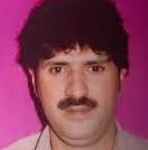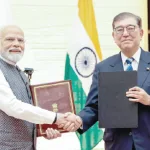Eid arrives like the first light of dawn after a long and introspective night, bringing with it an air of tranquility and joy that permeates every corner of the world where faith resides. It is not merely an occasion marked by festivity; it is a culmination of a spiritual journey, an affirmation of faith, and a renewal of the sacred bond between humanity and the divine.
As the first crescent moon of Shawwal is sighted, a wave of excitement spreads like ripples on a still pond. Across continents and time zones, the faithful lift their hands in supplication, their hearts brimming with gratitude. The long days of fasting are behind them, but the lessons of restraint, patience, and empathy linger. The night before Eid, known as Chaand Raat in many cultures, is filled with preparations—markets bustling with last-minute shoppers, homes filled with the aroma of sweets being prepared, and hearts filled with anticipation. But beneath all this external exuberance, there is a quieter, deeper reflection taking place.
Eid is a time of joy, but it is not an indulgent joy; it is a joy tempered by remembrance, softened by gratitude, and enriched by kindness. It is a joy that recognizes the struggles of others and seeks to lessen them, even if only for a moment. Before the sun rises on Eid morning, before the first bite of food breaks the long fast of self-discipline, there is an obligation that must be fulfilled—Zakat al-Fitr.
This simple yet profound act of charity ensures that those who are less fortunate are not left behind in the celebrations. It is a quiet reminder that no soul should be forgotten, that no table should be empty, and that true happiness lies in giving rather than receiving. A few coins, a portion of grain, or a small donation may seem insignificant to the one who gives, but to the one who receives, it is a gateway to dignity. It allows them to partake in the collective joy of Eid, to wear a new garment, to taste something sweet, to feel included. And in that inclusion lies the true beauty of this day.
As the morning unfolds, worshippers gather in open prayer grounds, their hearts synchronized in devotion. The air is thick with whispered prayers, murmurs of “Allahu Akbar,” and the soft rustling of garments as thousands bow in unison. There is no distinction of wealth or status here; kings and paupers stand shoulder to shoulder, bound by a shared faith, humbled before the divine. This moment of unity, fleeting yet eternal, is a testament to the essence of Eid—it is a day when differences dissolve, and only the purity of the soul remains.
Yet, beyond the grandeur of congregational prayers and festive meals, the spirit of Eid thrives in the small, often unnoticed acts of kindness. It is in the hands of a mother, gently tying a new scarf around her daughter’s head. It is in the feet of an old man, walking the extra mile to deliver sweets to a neighbor who lives alone. It is in the tired yet contented smile of a father, who, despite financial hardships, has managed to buy something special for his children.
Eid is not meant to be a solitary joy; it is a communal experience. The true fulfillment of this day is found not in what we receive, but in what we give. It is found in the act of reaching out—to the orphan who has no one to call family, to the widow whose eyes still glisten with unspoken sorrow, to the beggar whose outstretched hand is often ignored. The joy of Eid is amplified when it is shared, when it spreads beyond the walls of our homes and into the streets, touching the lives of those who need it most.
In the quiet corners of the world, where struggle is a constant companion, Eid takes on a different shade. In refugee camps, where families have been torn apart by war and displacement, a simple piece of bread becomes a feast, a smile exchanged between strangers becomes a lifeline. For those in exile, for those who have lost their homeland, Eid is not just a day of celebration; it is a day of remembrance—a moment to recall the laughter that once filled their homes, the scent of familiar spices wafting through kitchens, the warmth of a mother’s embrace. And yet, even in sorrow, there is resilience. The human spirit, despite its wounds, finds a way to create joy, even if that joy is stitched together with fragments of memory and hope.
Service to others lies at the very heart of Eid. In its purest form, it is not about grand gestures but about the simplest acts of humanity. It is about making space at the table for an unexpected guest, about offering a ride to someone walking alone, about taking a moment to ask an elder how they are feeling. It is about recognizing that we are all part of something greater than ourselves, that our blessings are not ours alone to keep.
And then there is gratitude—the silent undercurrent that runs beneath the surface of Eid. It is present in the whispered prayers of a mother, thanking the heavens for the health of her children. It is in the bowed head of a laborer, whose weary hands clasp together in thanks for a day of rest. It is in the joyful laughter of a child, oblivious to the struggles of the world, finding contentment in the simple pleasure of a new toy. Gratitude is the essence of this day—not just for what we have, but for the opportunity to give, to love, to be part of something sacred.
As the day wanes and the festivities slowly settle into a quiet evening, the true meaning of Eid lingers in the air. It is in the afterglow of smiles exchanged, in the warmth of embraces shared, in the silent satisfaction of knowing that somewhere, because of a small act of kindness, someone else’s Eid was made brighter.
Eid does not end when the sun sets on this sacred day. The spirit of Eid is meant to endure, to stretch beyond the bounds of a single celebration, to become a way of life. For what is Eid, if not a reminder that joy is multiplied when shared, that kindness is the purest form of worship, and that gratitude is the key to true fulfillment?
And so, as we bid farewell to another Eid, let us carry its essence forward—not just in the clothes we wore or the meals we shared, but in the kindness we extended, in the love we nurtured, and in the commitment to serve those who need us. Let us live every day with the spirit of Eid in our hearts, for in doing so, we honor not just the festival, but the very essence of humanity itself.
(Author is RK Columnist and can be reached at:[email protected])








